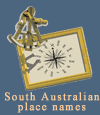
 |
 |
 |
 |
 |
 |
 |
 |
 |
Internet
sites | Further sources
In an epic voyage of discovery lasting from 1801 to 1803, Matthew Flinders was the first to circumnavigate the island continent known as New Holland. On 18 July 1801, Flinders sailed from Portsmouth in HMS Investigator to explore the continent's 'unknown coast', sighting Cape Leeuwin, Western Australia, on 6 December. The English were aware that the French had sent out an expedition to the southern continent nine months earlier, and were suspicious of their motives, particularly as the two countries were at war.
By 27 January 1802, the Investigator was near the head of the Great Australian Bight. From February to March 1802, the British crew surveyed Spencer's Gulf, explored Kangaroo Island, and charted St Vincent Gulf. In April the Investigator revisited Kangaroo Island, and on April 8 and 9, unexpectedly met the French expedition under the command of Nicolas Baudin at the location which became known as Encounter Bay. Despite their countries being at war, the captains exchanged information in a spirit of cooperation.
Flinders continued to journey eastwards, leaving present day South Australian waters on 19 April, and reaching Port Jackson in May 1802. After the ship had been refitted and the crew rested, the English expedition sailed north to survey the eastern coast of the continent, adding to Cook's earlier charts, and then chart the Gulf of Carpentaria. The pressing need for further ship repairs forced Flinders to sail to Timor. He stopped his survey of the north Australian coastline at Wessel Islands. The Investigator then continued on around the western and southern coasts of New Holland, arriving back in Port Jackson [Sydney] in June 1803, thereby completing the circumnavigation.
By this time the Investigator was in such poor condition it was deemed unseaworthy, so Flinders sailed in the Porpoise to return to England, only to be shipwrecked at Wreck Reef. Using the Porpoise's cutter, Flinders returned to Port Jackson and arranged the rescue of the crew. In a second attempt to return home, Flinders set out on the Cumberland, but as this ship required repair, he was forced to seek assistance at Ile de France [Mauritius]. France and England had resumed war, and the Governor General of Ile de France detained Flinders for the next 6½ years.
During this period Flinders drew up his charts and in a letter to Sir Joseph Banks, championed the name 'Australia' for the entire southern continent, rather than 'Terra Australis' or 'New Holland'. Flinders finally gained his freedom, leaving Ile de France in June 1810 and arriving back in England in October of that year. His account of the expedition A voyage to Terra Australis, with Atlas, was published on 18 July 1814, and he died the following day.
Flinders' outstanding achievements are of especial interest to South Australians. Without Flinders and Baudin's maritime explorations, and the detailed charts produced, the southern and western colonies of Australia could not have been settled. Flinders bestowed many South Australian place names along the coast, and is commemorated in the naming of other locations such as the Flinders Ranges, and Flinders Chase. Flinders University was named after the explorer.
Internet site
Flinders [Royal Geographical Society of Queensland]
Further sources
Flinders, Matthew. A voyage to Terra Australis. Adelaide: Libraries Board of South Australia, 1966. Australiana facsimile editions; no. 37. Reprint of 1814 ed.
Advertiser 19 February 2002 'Encounter 2002 - Discovery of the unknown coast' Part 1: 'The explorers'.
Austin, K. A. The voyage of the Investigator, 1801-1803: Commander Matthew Flinders, R.N. Adelaide: Rigby, 1964.
Brosse, Jacques. Great voyages of discovery: circumnavigators and scientists, 1764-1843 / Jacques Brosse; translated by Stanley Hochman; preface by Fernand Braudel. New York, NY: Facts on File, c1983.
Brown, Anthony J. Ill-starred captains: Flinders and Baudin. Hindmarsh, S. Aust.: Crawford House Publishing, 2000.
Colwell, Max. The voyages of Matthew Flinders. London, New York: P. Hamlyn, [1970]
Cooper, H. M. The unknown coast: being the explorations of Captain Matthew Flinders, along the shores of South Australia, 1802. Adelaide: The author, 1953.
Cooper, H. M. The unknown coast: (a supplement). Adelaide: The author, 1955.
Flinders, Matthew. Terra Australis: Matthew Flinders' great adventures in the circumnavigation of Australia / edited and introduced by Tim Flannery. Melbourne: Text Publishing, 2000
In Flinders wake [video recording]: a voyage to the Unknown Coast. . Para Hills, SA: Flinders Wake, [2002]
Radok, R. (Rainer) Capes and captains: a comprehensive study of the Australian coast. Chipping Norton, N.S.W.: Surrey Beatty & Sons, 1990



